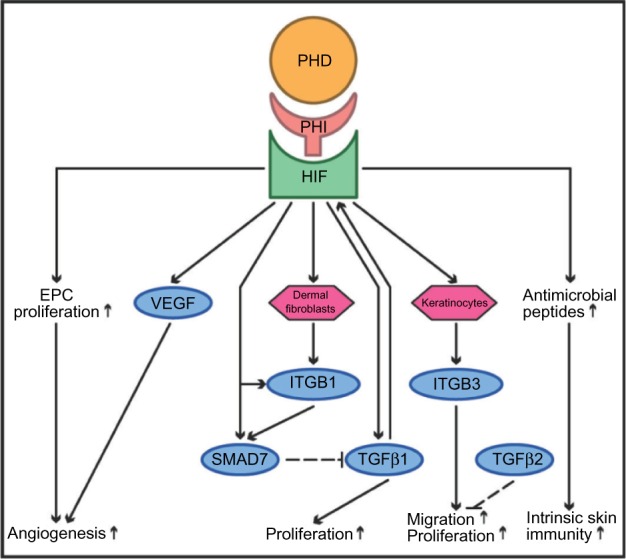Figure 3.

The putative effects of prolyl hydroxylase domain-containing enzyme inhibitors (PHI) in wound healing.
Notes: Hypoxia-inducible factor (HIF) stabilization by PHI may improve wound healing, first, via enhanced angiogenesis (upregulation of vascular endothelial growth factor [VEGF] and endothelial progenitor cell [EPC] proliferation); second, via keratinocyte proliferation in the basal skin layer (reduced activity of the canonical transforming growth factor beta (TGFβ) 2 pathway and increased transcription of integrin beta [ITGB] 3); third, via increased proliferation of dermal fibroblasts directly through HIF-dependent stimulation of TGFβ1 and indirectly through induction of ITGB1, which in turn reduces the activity of mothers against decapentaplegic homolog 7 (SMAD7), a strong inhibitor of TGFb1. In a positive feedback loop, TGFβ1 can further stabilize HIF by selectively inhibiting prolyl hydroxylase domain-containing enzyme (PHD) 2. Finally, PHI may improve wound healing through production of antimicrobial peptides, and thus strengthen the intrinsic immunity of the skin layer.
